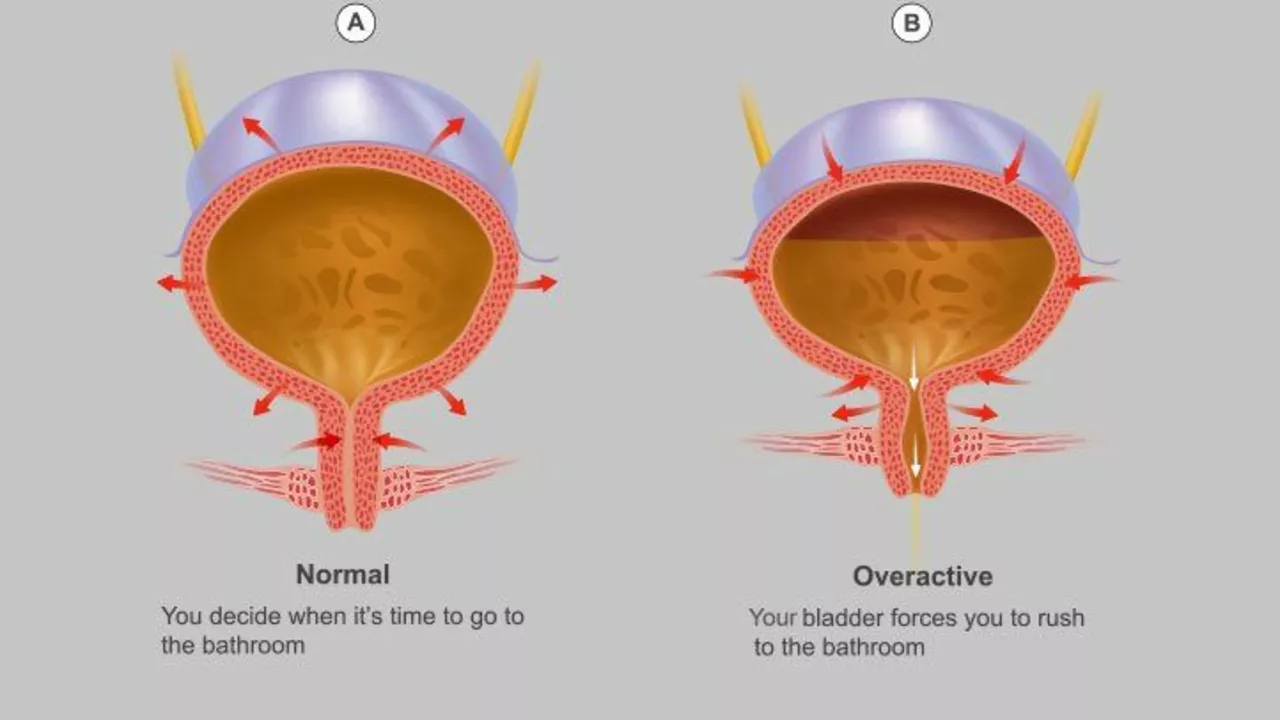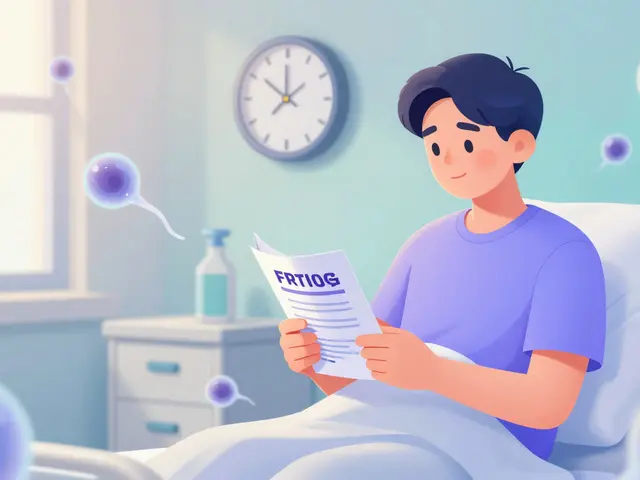Fertility Preservation Before Chemotherapy: What You Need to Know
January 19 2026Mental Health: Practical Help, Meds, and When to Seek Support
If you’re dealing with low mood, anxiety, brain fog, or sudden changes in thinking, you’re not alone. Mental health includes mood, memory, focus, and behaviors. This page collects clear, practical posts about common treatments, medication tips, and how neurological conditions can affect mood and bladder control.
Medications can help, but they work differently. Donepezil is prescribed for Alzheimer’s and may improve attention and decision making in some people. Vilazodone is an antidepressant that tends to cause less weight gain and fewer sexual side effects than older drugs. Buspirone is mainly for anxiety and has been used off-label to ease cravings during recovery from certain addictions. If a medication sounds promising, ask your prescriber about realistic benefits, typical timelines, and expected side effects.
Worried about side effects or interactions? Keep a simple list of all medicines, supplements, and alcohol habits and share it with your clinician and pharmacist. Ask specifically about sleep, appetite, sexual function, and any movement changes. If you start an antidepressant or mood medicine, check in weekly for the first month and report new thoughts of self-harm immediately.
Neurological conditions can change bladder habits and mood. Conditions like multiple sclerosis, Parkinson’s disease, and stroke may disrupt nerve signals that control the bladder. If you notice sudden urgency, frequent trips to the bathroom, or incontinence alongside cognitive or movement changes, bring both symptoms up at your next appointment so your team can coordinate care.
Therapy matters as much as pills for many people. Cognitive behavioral therapy, behavioral activation, and habit-based coaching can reduce symptoms and improve daily function. Combining medication with talk therapy often gives faster, longer-lasting results than either approach alone.
Practical steps you can take today: track sleep and mood for two weeks, set small daily routines, cut back on alcohol and stimulants, and add 20 minutes of brisk walking most days. Small habits change how medications work and how you feel overall.
Questions to ask your clinician: What is the main goal for this treatment? How soon should I see changes? What side effects require urgent care? Can this medication interact with my other drugs? Who should monitor my progress?
If you need medication delivered to your home, check available pharmacy services and verify storage and handling instructions. Keep emergency contacts handy and have a plan if symptoms spike.
Quick Safety Checklist
Keep a current med list, note allergies, know emergency numbers, store medicines away from children, and ask how to taper off if stopping a drug. Track mood changes in a simple diary and bring those notes to appointments. If you notice confusion, severe sleepiness, or suicidal thoughts, seek urgent care or call your local emergency line immediately. Stay connected.
 26 Jan
26 Jan
Vilazodone and Diarrhea: How to Manage GI Side Effects When Starting Antidepressant Treatment
Vilazodone can cause diarrhea in up to 29% of users, but most cases are mild and fade within two weeks. Learn how to manage it with food, probiotics, and proper dosing - and when to switch medications.
Read More... 18 Oct
18 Oct
Autism Parenting Styles: How to Choose the Best Approach for Your Family
A practical guide for parents of autistic children, explaining how to match parenting styles with autism needs, offering strategies, tools, and a quick checklist.
Read More... 5 Jan
5 Jan
Enhancing Executive Function with Donepezil: A Deeper Dive
Donepezil, a well-known medication for Alzheimer's treatment, is gaining attention for its potential positive impact on executive functioning. This article dives into the ways Donepezil might assist in sharpening decision-making, improving attention, and boosting problem-solving skills. By exploring the drug's effects on certain cognitive faculties, readers can better understand how it extends its benefits beyond memory support. We also analyze scientific studies to shed light on the promising shifts Donepezil can bring to cognitive health.
Read More... 3 Jun
3 Jun
Debunking Common Myths About Vilazodone
In today's post, I'm going to debunk some common myths surrounding Vilazodone, an antidepressant medication. Many people believe that Vilazodone causes significant weight gain, but in reality, studies show that it has minimal impact on weight. Another myth is that it impairs sexual function, yet data indicates that Vilazodone actually has a lower risk of sexual side effects compared to other antidepressants. Finally, some might think it's addictive, but Vilazodone is considered non-habit forming. It's essential to consult with a medical professional before making any decisions about your mental health medication.
Read More... 14 May
14 May
Overactive Bladder and Neurological Disorders: Understanding the Link
As a blogger, I've recently come across the fascinating link between overactive bladder and neurological disorders. It turns out that certain conditions, such as multiple sclerosis, Parkinson's disease, and stroke, can impact the nerves that control our bladder function. This can lead to symptoms like frequent urination, urgency, and even incontinence. It's crucial for those affected to consult with their healthcare provider to manage these symptoms effectively. By understanding this connection, we can better support those living with both overactive bladder and neurological disorders.
Read More... 27 Apr
27 Apr
The Role of Buspirone in Treating Substance Abuse and Addiction
As a blogger, I've recently been researching the role of Buspirone in treating substance abuse and addiction. It turns out that this medication, primarily used for anxiety disorders, has shown promise in helping with addiction management. Some studies suggest that Buspirone can help reduce cravings and withdrawal symptoms, making it easier for individuals to stay on the path to recovery. Additionally, it has fewer side effects compared to other medications used for addiction treatment. Overall, Buspirone appears to be a promising option for those looking to overcome substance abuse, and I'm hopeful that more research will continue to highlight its benefits.
Read More...




